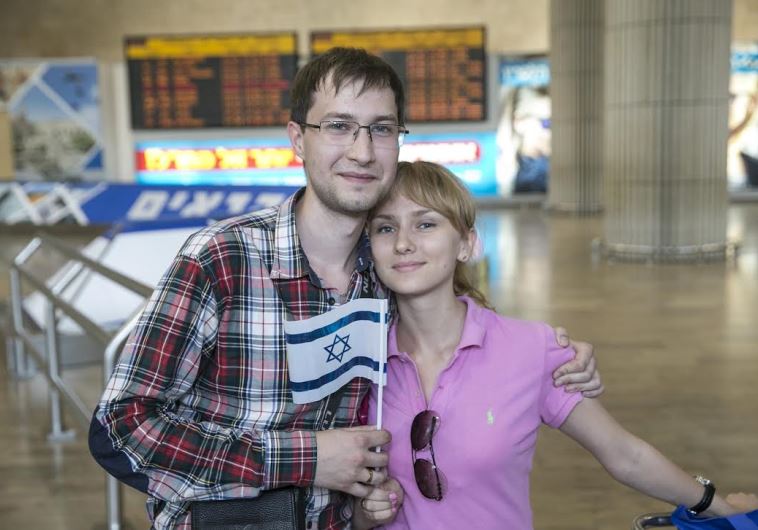Two Jews tortured by Ukraine rebels land in Israel
Over three-quarters of Donetsk’s pre-war Jewish population of between 10,000 and 11,000 have fled the city since fighting broke out last year.
 ROMAN MAKRIA and Sasha Malinka arrive at Ben-Gurion Airport on Wednesday.(photo credit: BAZ RATNER)
ROMAN MAKRIA and Sasha Malinka arrive at Ben-Gurion Airport on Wednesday.(photo credit: BAZ RATNER)